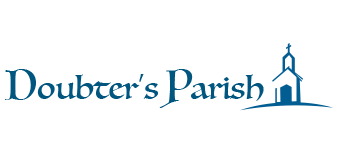The Decade of Doubt
Martin Thielen
December 1, 2020
A few weeks ago, a religious magazine published a cartoon depicting a man and a woman talking about faith. The man says, “I believe but sometimes I don’t.” The woman responds, “That’s weird because I don’t believe but sometimes I do.” Many people in America can relate to that cartoon. Sometimes we believe. Sometimes we don’t. But lately, a whole lot of us don’t.
I’m not a church historian. But if I were, I’d designate the years 2011–2020 “The Decade of Doubt” in American religious history. Here’s why.
First, it’s been true in my own pastoral experience. I served as a minister for four decades. Throughout those years, I often spoke to persons grappling with doubt. However, in my final decade of parish ministry (2011–2020), I spoke to an extremely large number of doubters, both lay and clergy.
For example, a few years ago a faithful parishioner confided to me, “I’m having serious doubts about my faith. It’s not like I decided to stop believing. I didn’t purposely reject my faith. It just slowly eroded and seems gone now. I can’t conger it back, regardless of how hard I try.”
Over the past decade, I’ve heard dozens of these kinds of stories, including agonizing faith struggles from a good number of ministers. However, my observations about a “decade of doubt” go far beyond personal anecdotes.
For example, a quick look at the publishing world over the past decade reveals a host of books that express significant doubts about orthodox faith and the institutional church. A few examples include Agnostic, In the Absence of God, Christianity after Religion, Executing God, The Great Spiritual Migration, How Jesus Became God, and Unbelievable. And numerous “new atheism” books, written a few years before 2011, still resonate with large numbers of people today, including The God Delusion and God Is Not Great.
Arguments for a “decade of doubt” can also be found in hard data from religious surveys. In a 1990 Gallup poll, about 75 percent of Americans believed in an “all-powerful, all-knowing, perfect and just Creator of the universe who still rules the world today.” In a follow-up 2020 poll, Gallup discovered that only about 50 percent of Americans still affirm that belief. In a major 2020 religious survey by Ligonier Ministries, 52 percent of Americans said, “Jesus was a great teacher but he was not God.” These kinds of unorthodox beliefs were almost unheard of just a few decades ago. They now represent a majority, or near majority, status.
Not only does a significant segment of the population doubt traditional beliefs, but they also harbor serious doubts about institutional religion. For example, church membership and worship attendance are rapidly plummeting throughout the country, especially among young adults.
A few decades ago, only 5 percent of Americans were religiously unaffiliated. Today that number is almost 25 percent and rapidly growing—more so than any other religious group. A 2020 Gallup poll revealed that the percentage of Americans who belong to a church, synagogue, or mosque has fallen from 70 percent in 1999 to about 50 percent today, an all-time low in the modern era.
Many of these rapidly growing doubts about organized religion are self-inflicted. Over the past decade, the church has done enormous damage to its reputation. From the hyper-partisanship of the evangelical church, to the pedophile priest scandal of the Roman Catholic Church, to the schism of the mainline church over human sexuality—the church has rightly earned the public’s skepticism. Regardless of the causes, institutional religion in the United States is clearly on the decline, with no end in sight to that trajectory.
So, what’s next? What will follow the “decade of doubt”? Nobody knows for certain. But research suggests that current trends will likely continue. On the other hand, this era of faith crisis in America offers, at least potentially, an opportunity to remake religion into a healthier, more Jesus-centered faith. Only time will tell if that redemptive path is chosen or not. Although I doubt (no pun intended) that will happen on a large scale, I’m hopeful at least a small remnant will rise to the challenge.
Given the current context of overwhelming doubts about religious beliefs and institutions in America, I decided to launch Doubter’s Parish in December 2020, at the tail end of the “decade of doubt.” It will be interesting to see what evolves in American Christianity during the next decade. Please stay tuned!
